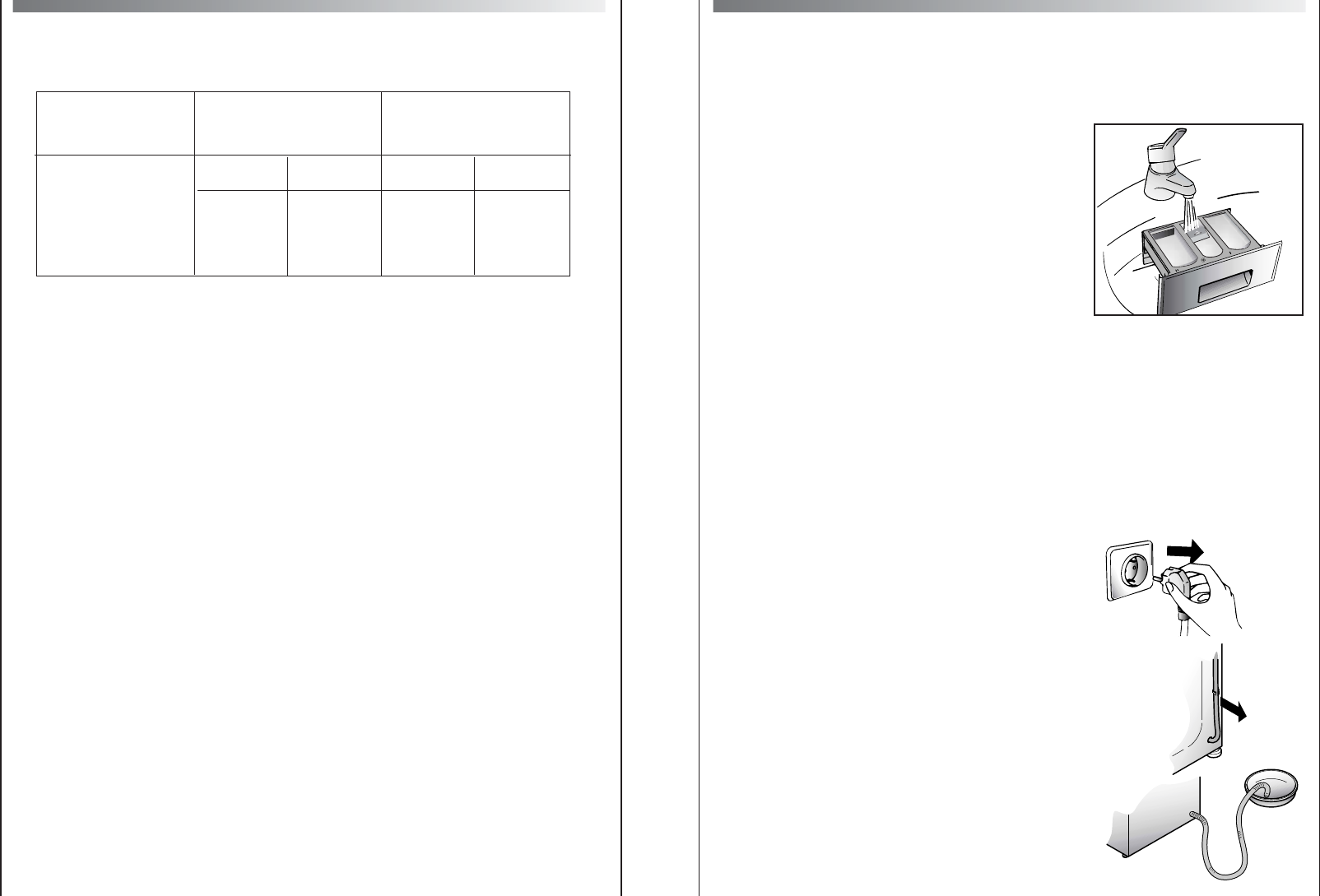
29
PROGRAMME
Extra
Cupboard
Iron
Min 1 Kg
from 30’
from 30’
from 30’
Min 1 Kg
from 30’
from 30’
from 30’
Max 3 Kg
to 170’
to 150’
to 80’
COTTON MIXED
Table of drying times (in minutes):
Max 4 Kg
to 230’
to 220’
to 170’
28
USEFUL TIPS:
Do not dry unwashed items in the washer dryer.
Items that have been soiled with substances such as cooking oil, acetone, alcohol, petrol,
kerosene, spot removers, turpentine, waxes and wax removers should be washed in hot
water with an extra amount of detergent before being dried in the washer dryer.
Items such as foam rubber (latex foam), shower caps, waterproof textiles, rubber backed
articles and clothes or pillows fitted with foam rubber pads should not be dried in the
washer dryer.
Fabric softeners, or similar products, should be used as specified by the fabric softener
instructions.
The final part of a washer dryer cycle occurs without heat (cool down cycle) to ensure that
the items are left at a temperature that ensures that the items will not be damaged.
WARNING:
Never stop a washer dryer before the end of the drying cycle unless all items are quickly
removed and spread out so that the heat is dissipated.
Cleaning and routine maintenance
Do not use alcohol-based scourers and / or thinners on the outside of your washing machine,
just a wipe with a damp cloth will suffice. The washing machine needs very little maintenance:
- Cleaning the drawer compartments.
- Cleaning the door glass.
Cleaning the drawer compartments
Even if it is not strictly necessary, it is good to clean the
compartments for bleaching detergents and additives
occasionally.
A) To do this you just need to pull them out firmly, but
without forcing them.
B) Clean everything in the compartment under running
water.
C) Put everything back in its proper place.
Cleaning the door glass
Regularly clean the door glass with a damp cloth. A build
up of soiling and
residues from the water may result in water leaking from
the door.
Do not use abrasive cleaners as they can scratch the
surface.
Transporting the appliance or long
periods when appliance is not in
use
If the appliance is being transported or is out of use for
long periods in unheated places, all remaining water
must be completely removed from the hoses.
Ensure mains power is off, then unclip the hose and
point it downwards into a basin until all the water has
emptied out.
When finished, repeat the operation in the reverse order.


















